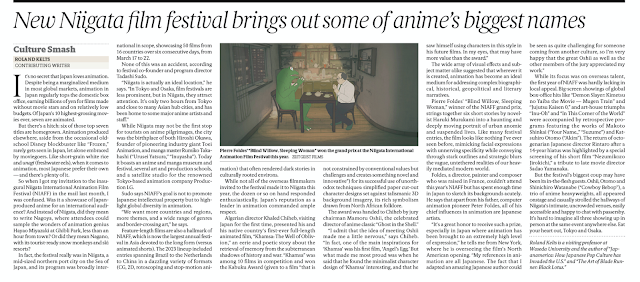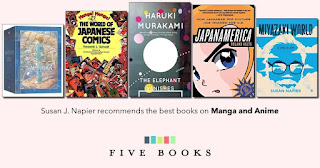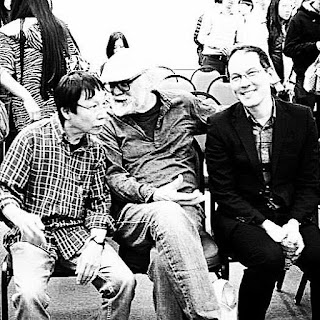New chat w/Haruki Murakami for The Nikkei

Movie animates Murakami's portraits of empty lives American writer Nathaniel Rich once claimed that Haruki Murakami, lauded internationally and regularly short-listed for the Nobel Prize in literature, actually writes "genre fiction," the commercial label for stories that repeat formulas, conventions, plots and sometimes whole casts of characters to satisfy reader expectations (think "Game of Thrones" or "Harry Potter"). Genre works are distinguished from the less predictable and less marketable aims of literary fiction -- and have a much better shot at the bestseller list. The kicker, according to Rich, is that Murakami created his own genre, absorbing literary conceits into a blend of other recognizable storytelling tropes from the realms of noir, fantasy, horror and sci-fi. The most salient hallmark of the Murakami genre is its fluid shifts between a ruthlessly humdrum reality and poetic, often borderline erotic and prophetic dreamworlds. These ...


















